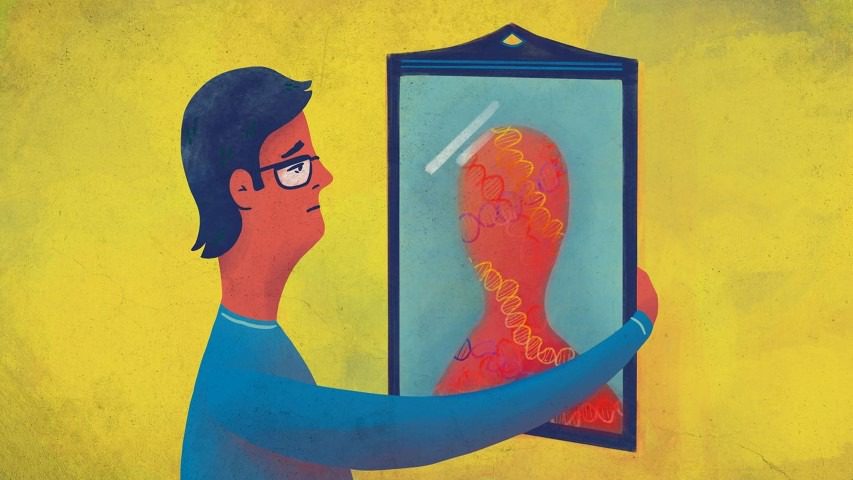Narcissism and Depression – Understanding the Connection
Narcissism and depression are two complex mental health problems that often occur together.
First, it’s important to understand what narcissism is. Narcissism is a personality disorder characterized by an exaggerated sense of self-importance, a constant need for attention and admiration, a lack of empathy for others, and a sense of entitlement. Narcissists often have an inflated sense of their own abilities and accomplishments and may be preoccupied with fantasies of power, success, and beauty. They can also become easily angered when their expectations are not met and may react with contempt or rage toward those who criticize them.
On the other hand, depression is a mood disorder characterized by persistent feelings of sadness, hopelessness, and emptiness. People with depression may experience a loss of interest in activities they once enjoyed, have difficulty sleeping or sleeping too much, and may experience feelings of worthlessness and guilt. They may also experience physical symptoms such as fatigue, headaches, and digestive problems.
While on the surface narcissism and depression may seem like opposite conditions, they are actually two sides of the same coin. Both conditions are rooted in a deep sense of shame and a lack of self-worth. Narcissists may have a grandiose sense of self-importance, but this is often a facade that masks deep-seated feelings of insecurity and inadequacy. Similarly, people with depression may feel worthless and hopeless, but this is often rooted in a negative self-image and a distorted view of their own abilities and achievements.
In many cases, narcissistic tendencies can actually be a defense mechanism against feelings of depression and despair. By maintaining a sense of superiority and control over their environment, narcissists can avoid feelings of vulnerability and helplessness. However, this defense mechanism can be fragile, and when challenged, narcissists can react with anger and hostility, leading to a vicious cycle of self-protective behavior and interpersonal conflict.
Procrastination isn’t just laziness…
In psychotherapy, the goal is to help patients develop a more realistic and compassionate view of themselves and others. For patients with narcissistic tendencies, this may involve challenging their grandiose self-image and helping them recognize and accept their vulnerabilities and limitations. For patients with depression, therapy may focus on identifying and changing negative thought patterns and building a sense of self-worth and self-esteem.
Narcissism and depression are complex mental health problems that often occur together. Although they may seem like opposite conditions on the surface, they are actually two sides of the same coin. Both are rooted in deep feelings of shame and a lack of self-worth, and both require a compassionate and nuanced approach in therapy. By understanding the relationship between these two conditions, psychotherapists can help patients develop a more integrated and healthy sense of self.
It is also important to note that narcissism and depression can be influenced by a variety of factors, including genetics, environmental experiences, and cultural norms. For example, in some cultures, narcissistic behavior may be more acceptable or even encouraged, while in others it may be considered inappropriate or even pathological. Similarly, cultural norms around masculinity and femininity may influence how narcissism and depression are expressed and experienced.
One of the challenges in treating patients with narcissistic tendencies and depression is the fact that these two conditions can interact in complex ways. For example, a narcissistic patient who experiences failure or failure may be more vulnerable to feelings of depression and despair, while a depressed patient is more likely to adopt narcissistic behaviors as a way to cope with feelings of inadequacy and low self-esteem.
In therapy, it is important to take a holistic and compassionate approach to addressing these issues. This may include exploring the client’s past experiences and relationships, identifying patterns of behavior and thinking that contribute to their symptoms, and helping them develop more adaptive coping strategies. It may also include working with the client to develop a more realistic and compassionate view of themselves and others, and to build a sense of self-worth that is not dependent on external validation or achievement.
Ultimately, the relationship between narcissism and depression is complex and multifaceted, and requires a nuanced and compassionate approach in therapy. By understanding the underlying factors that contribute to these conditions and working with clients to develop more integrated and healthy ways of relating to themselves and others, psychotherapists can help their clients find greater peace and fulfillment in their lives.

Keywords: Narcissism and depression, narcissism, depression, psychotherapy Zagreb, Licensed therapist near me in Manhattan NYC, Affordable therapy services in New York State, Holistic psychotherapy sessions in NYC, Somatic Experiencing therapy for trauma recovery in New York City, NARM therapy in Brooklyn, Licensed couples therapy in Manhattan, Gestalt therapy near me in NYC, Marriage counseling in Queens NYC, Therapy for anxiety treatment in NYC, Experienced psychotherapist in New York, Licensed psychotherapist near me in NYC, Somatic Experiencing therapy sessions in New York, Trauma therapy and counseling in Manhattan, Gestalt therapy sessions in New York City, Therapy sessions for emotional regulation in New York, Trauma therapy near me in Brooklyn New York, Licensed mental health therapist in Manhattan NYC, Depression therapy in New York, New York City therapist experienced in PTSD treatment
*Photo: GettyImages
*Contact: Make an appointment
*For companies: Creative manager
Suppressed anger: uncovering the path to chronic illness








